Marguerite: that must endure eternally! Eternally! —Its end would be despair. There must not be an end! Not ever!
Faust, a Tragedy by Goethe
This is Part 4 of Fr. Dominick O’Grady and Mollie Gilmartin. If you need to catch up, here are Part 1, Part 2, and Part 3.
Mollie’s brothers come to town
At the brick house of the Tibbles on Chestnut Street, a piece of white crepe with a white satin bow hung from their doorbell. Men, women, and children had passed by the house and said, “she’s in there,” all of the day before.
Mollie Gilmartin’s body lay in a coffin in a room lit only by two holy candles. The only sign of the violent death that she met was a small bruise over her eye, as the undertaker had ensured that a bullet hole on her jaw was hidden.
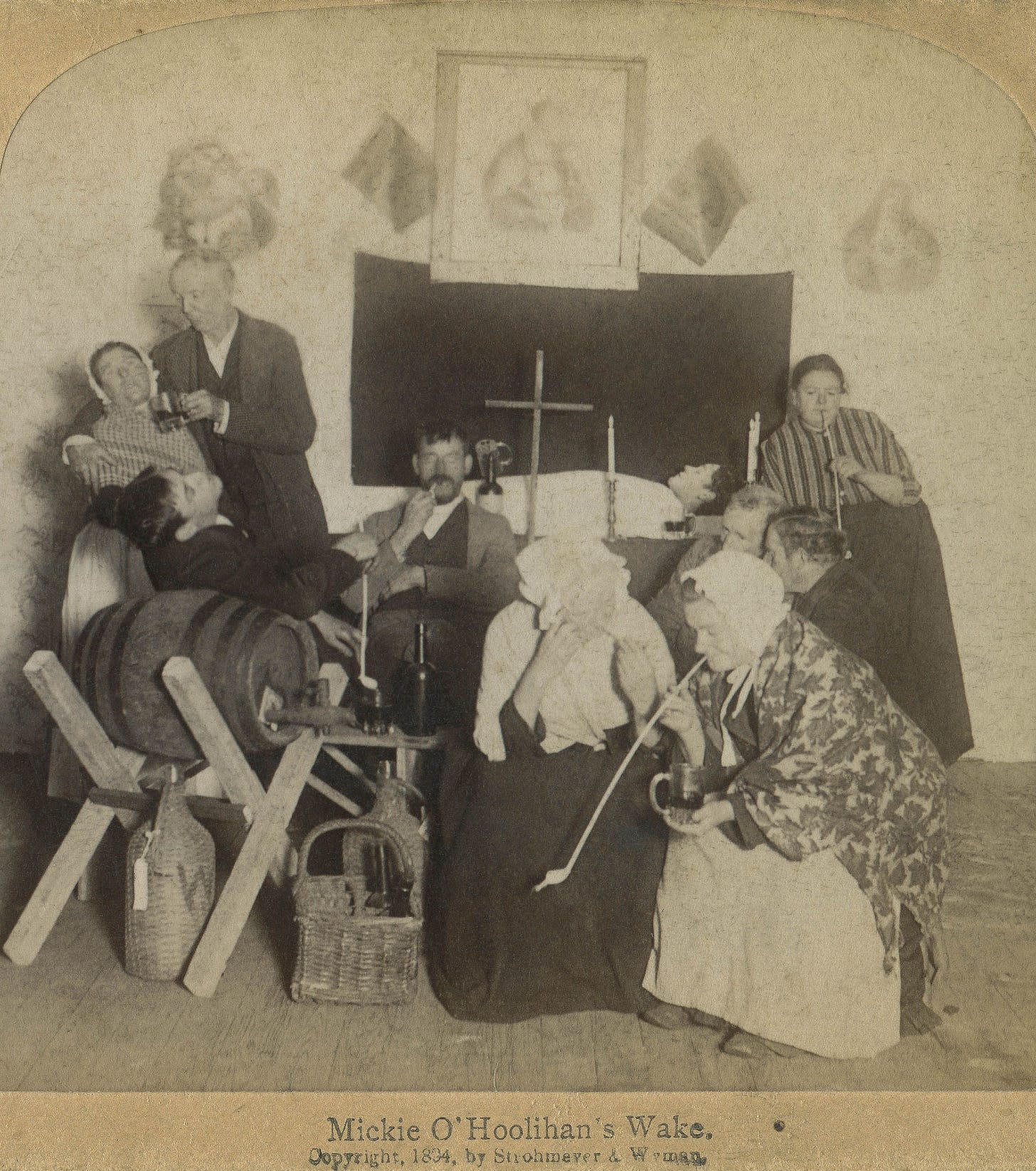
Her brothers, Father Michael and John, a student of theology, showed up from out of town and were taken to the parlor room where Mollie’s body lay. They looked at her pale face, knelt down, and wept. They were left alone in the room in prayer.
Fr. Michael’s defense of Mollie’s honor
Later in the day her brothers, joined by the Tibbles family, proceeded to the office of the coroner for an inquest into the death of Mollie, at which Fr. O’Grady was also present. Crowds lined up in the streets trying to catch a glimpse of the inquest. Fr. Michael began to speak, looking Fr. O’Grady directly in the eyes while O’Grady rested his head on his hand.
At one point during the inquest an interesting dialogue is noted between Fr. Michael and a Cincinnati Enquirer reporter regarding the purity of Mollie.
Fr. Michael: I want to make public my conviction that my poor sister has been wronged by the newspapers in the matter of her alleged intimacy with Fr. O’Grady. She was as pure as one of God’s angels.
The reporter: why did your sister leave Ireland?
Michael: From her childhood she had a desire to see America. A not uncommon desire on the part of the Irish, by the way. I was out here, John was here, mother was dead, and there was no reason why she should not gratify the wish of her life. The man who says that she had other motives for leaving home tells a lie of the foulest kind.
The reporter: But something akin to a love affair did exist between her and O’Grady nevertheless?
Fr. Michael: Not on my sister’s side. But as far as O’Grady was concerned there was an infatuation which led him to be false to his vows, unfaithful to his charge and recreant to his God. He let his passion sweep all else out of life.
The reporter: Is it true that they lived at the same hotel here, though?
Fr. Michael: True or untrue, my sister died a virgin. The doctor who has made the post-mortem examination on her body will vouch for that. Ah, my beloved, maligned sister.
At this response, he was noted to have tears in his eyes.
Mollie’s Condition
A letter written by Mollie to Fr. O’Grady during the time she had first moved to Cincinnati and he had returned to Ireland makes note of a condition that Mollie experienced that caused her great distress and shed more light on the dynamics of their relationship.
“My Dear Father O’Grady: I received your letter the other day and I need not tell you how uneasy I have been ever since. Now, for God’s sake, will you tell me if there is anything the matter with me, or how I am to know if there is, or what I could take. (Mollie here tells of her condition, notes the Enquirer).
“My God, when I think how cruelly I have been deceived, and how you say to tell you if there is anything the matter with me, and that you would come at a moment’s notice, indeed I am thankful as if you could come, and I to be able to spend any time with you. I wish you to understand that if I find anything the matter with me I shall never write or see you again. You always told me that would be a sure sign that nothing was the matter with me; but, thank God, I know one way to end my troubles, and I shall surely do it.
“I once wished that I died in poor momma’s place, but how much more do I wish it now. Indeed, I am commencing to understand how foolish I ever was to leave home and be led astray by one who I thought was so good. Now, I don’t see what business you have in coming to Cincinnati, as I cannot see you. Now, for Lord’s sake, will you write and tell me all, and seal your letter?-Mollie”
A later letter she sent to O’Grady suggested things turned out to be okay but she still needed to know how to tell if anything was the matter with her. Whatever was meant by her condition, it seems after this Mollie began to realize that it was time to back away from the situation with Fr. O’Grady. Mollie stated in a future letter that if he would not break away from his vows, she would no longer have relations with him. It seems this was a very wise decision considering the pressure that Mollie was under with her family and society norms of the time, but of course, Fr. O’Grady ultimately did not accept it.
Finding happiness before her death
Mollie noted in another letter to Fr. O’Grady that she’d found happiness in her new life in Cincinnati. She wrote that there were many wealthy Irish in the city and she enjoyed attending parties, plays, and social events with them. Mollie stated she was attending masses with Irish priests regularly and had also socialized with some very nice Protestants and Germans.
Mollie had found a job as a clerk at Pulvermacher’s Electric Belt Company, a treatment center that advertised its product as a cure for a variety of ailments including all nervous complaints. In her last days, as Mollie was dealing with an anxiety provoking situation with Fr. O’Grady, she was providing a service to others to cure their nervous ailments, and it seemed to bring her much contentment.
A Modern Tribute to Mollie
In reading about Mollie Gilmartin, I learned that her family from Ireland contacted the Cincinnati police department in 2011 to learn more about what happened to her. The Cincinnati police were helpful to them, and they decided to place a headstone at her grave at St. Joseph’s New Cemetery in Cincinnati. The cemetery has many graves of Irish, Italian, and German residents of Cincinnati. I enjoyed a visit to Mollie’s grave and took some pictures of other Irish graves for you to enjoy to conclude the story of Mollie Gilmartin and Fr. O’Grady.
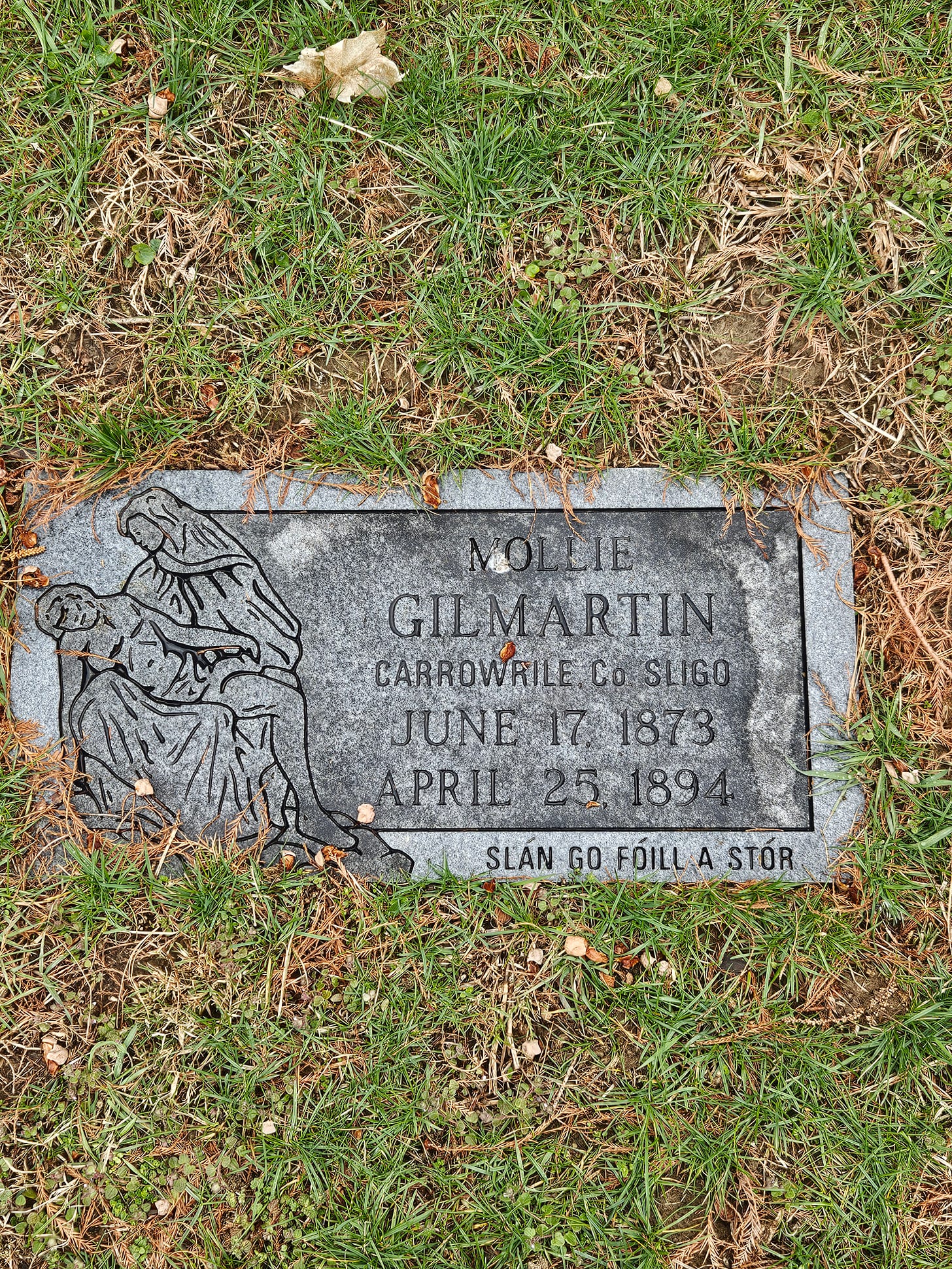
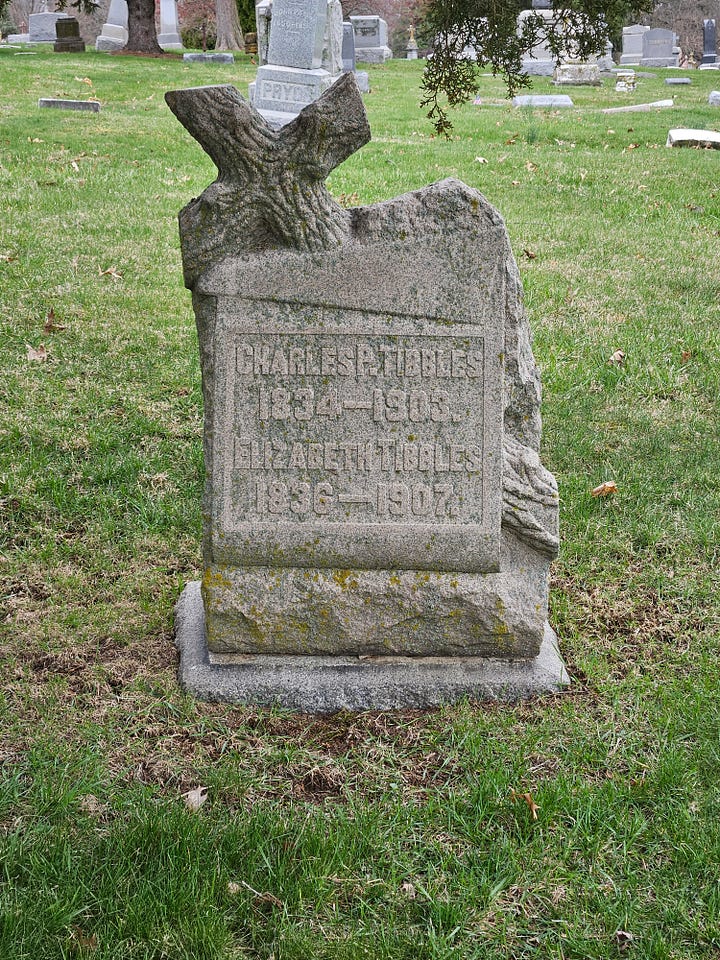
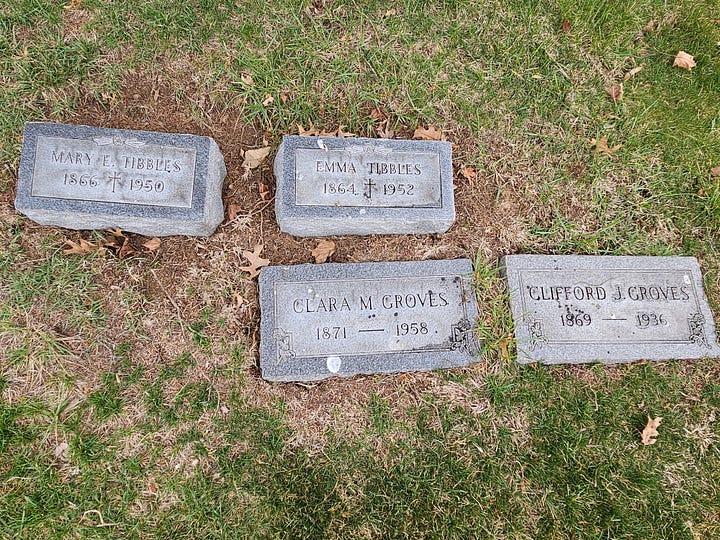
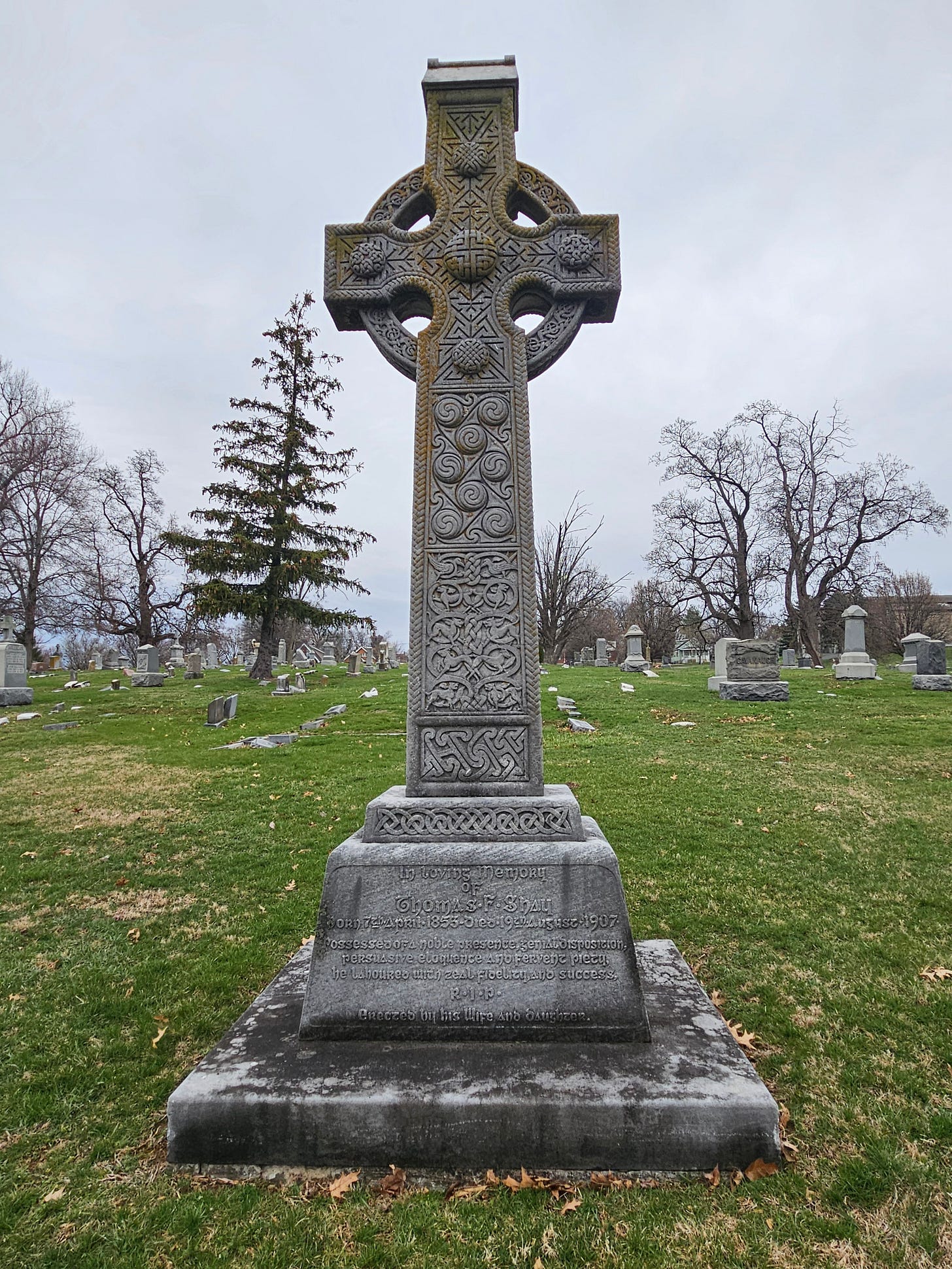
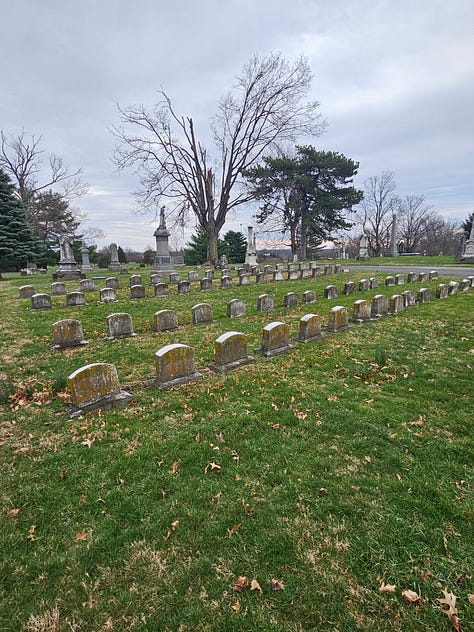
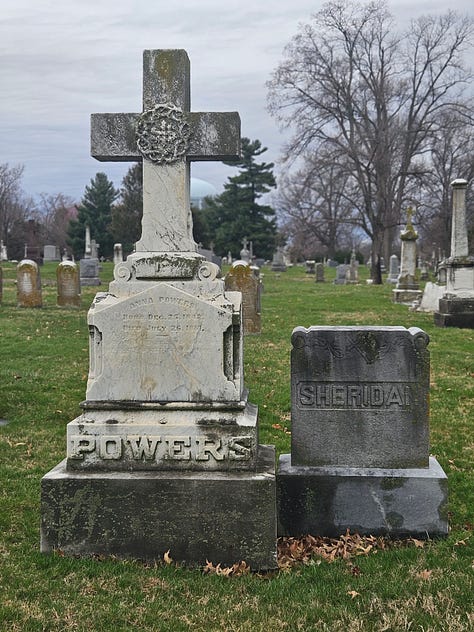
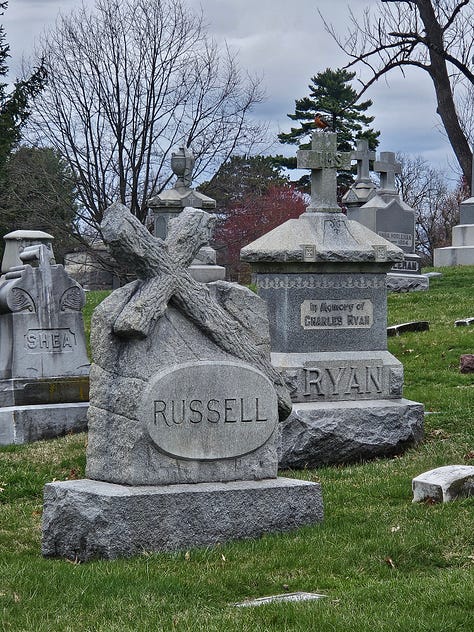

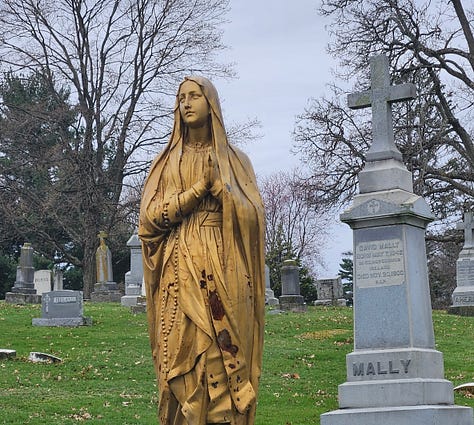
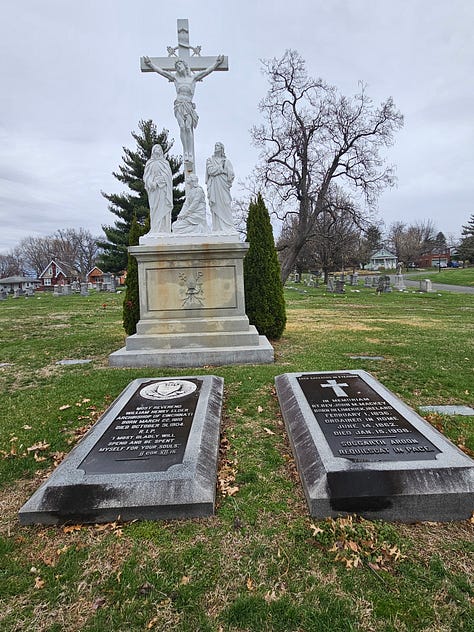
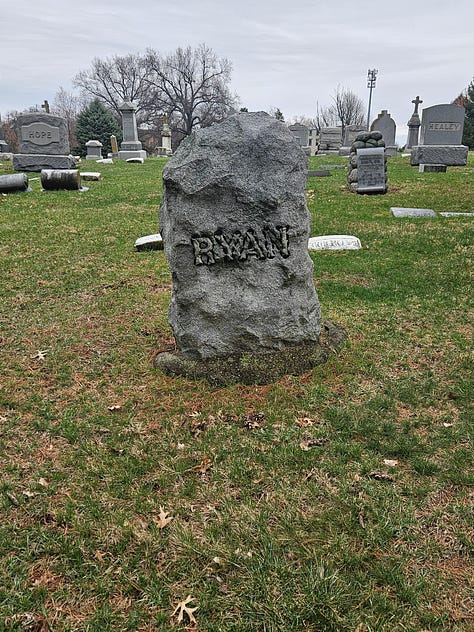
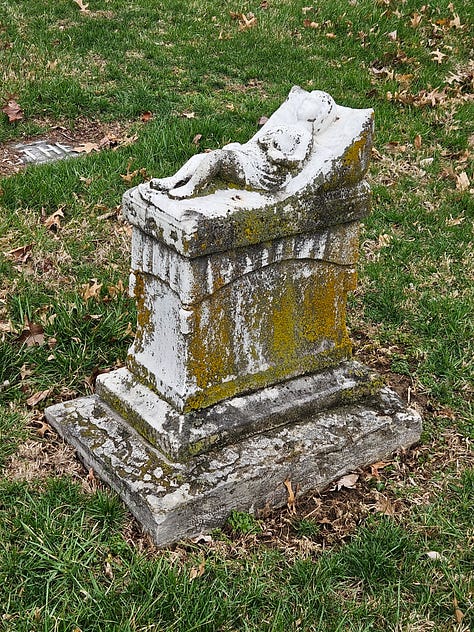
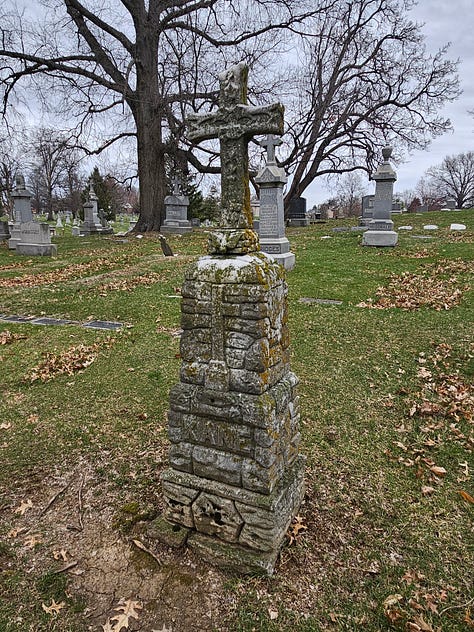
Conclusion
The defense of Mollie’s honor by her family and the Irish community of Cincinnati demonstrated their devotion to her despite the rumors of scandal. Because Fr. O’Grady escaped Longview before his trial for Mollie’s murder, Mollie and those who cared for her were denied the opportunity to receive justice through the court system.
Being able to visit the sites of this story made it all the more real to learn about. When I got near Mollie’s grave, I felt a sense of a presence watching, but nobody was out when I looked around at the time. I hope that in telling her story we can honor her spirit.
Sources:
https://libapps.libraries.uc.edu/liblog/2012/10/archives-month-in-ohio-and-the-cincinnati-irish/
“Ghastly: A Priest’s Awful Crime,” The Cincinnati Enquirer, April 26, 1894.
“The Priest: Penitent and Despairing,” The Cincinnati Enquirer, Friday April 27, 1894







I'm going to echo what someone else said. I think this would make for a good book. Even though it's a small detail, the fact that she worked for an electric belt company is such an interesting avenue that could be explored that's so particular to the period.
Thanks to all who followed along. I really was interested in this one and was amazed to see the spots I was able to, especially the cemeteries. Glad that Mollie's family was able to honor her with a headstone.